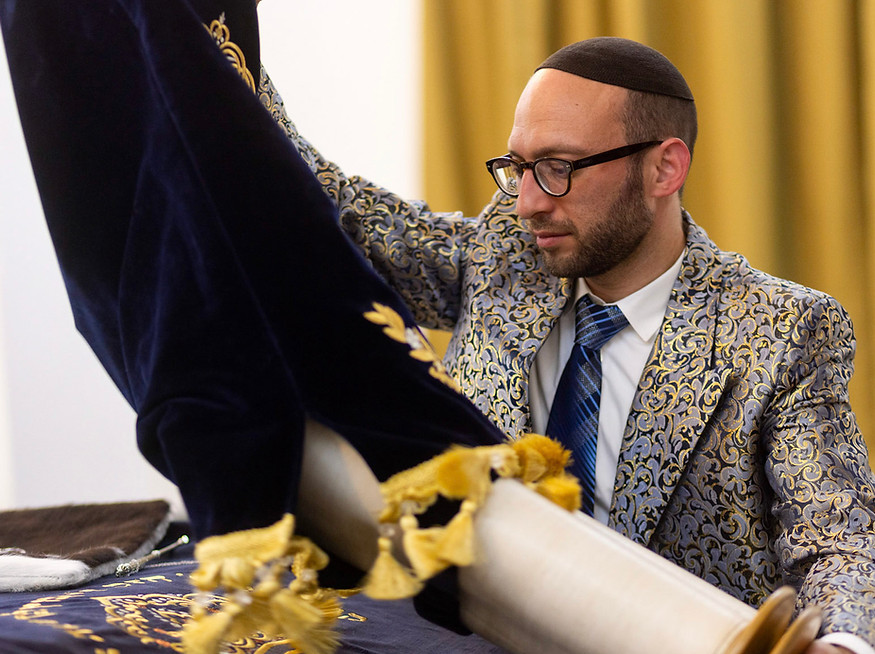
Akiva Weingarten
Rabbi Akiva Weingarten is the rabbi of the Jewish communities in Dresden and Freiuburg. Having grown up in the ultra-orthodox “Satmar” community in New York, his path led him via Israel to Germany, where he studied “Jewish Studies” in Potsdam.
About
Rabbi Akiva Weingarten was born in New York in 1984 and grew up with ten siblings in a Hasidic community in NY. He learned in four yeshivot there, and later in two more in Israel. Although he was a good student, Rabbi Weingarten was often thrown out of class because he asked too many critical questions. Free thinkers were not welcome in the community.
He received his first Smicha (ordination as a rabbi) at the age of 17, was engaged at 19 and married at 20. Two years later, he was already the father of two children.

Rabbi Weingarten

Israel
At the age of 18, Rabbi Weingarten went to Israel and lived there for ten years in the ultra-Orthodox community in Bnei Brak. He received his second and third smicha there. His three children still live in Israel today and are very close to each other.
Germany
In his late 20s, Rabbi Weingarten left Israel and the ultra-Orthodox community and moved to Germany. He ended up studying “Jewish Studies” at the FU and the University of Potsdam. He enjoyed the openness to ask questions and the freedom to develop academically. Today he is a rabbi in Dresden and Basel. He also helps dropouts to gain a foothold in the non-orthodox world. It is also important to him to strengthen Jewish life in Dresden.
Weingarten is the only liberal rabbi today who wears Hasidic clothing - such as shtreimel and kaftan - for Shabbat. In his sermons, he often uses Hasidic stories and explanations of the Torah, together with a liberal and contemporary interpretation. He describes himself as liberal Hasidic.

Ultraorthodox: Mein Weg
In 2022 Rabbi Weingarten wrote his book "Ultraorthodox:Mein Weg".
In his book Rabbi Akiva Weingarten opens a rare window into the hidden world of the Satmar Chassidim in New York. Born and raised in one of the strictest ultraorthodox Jewish communities, his life seemed predestined: Torah study, early marriage, and a large family. Yet behind the walls of tradition, he felt the growing weight of rules that left little space for individuality and freedom.
Readers will find not only an authentic account of life inside a closed community, but also inspiration for the universal struggle between belonging and freedom.
"Ultraorthodox : Mein Weg"was written on German.





